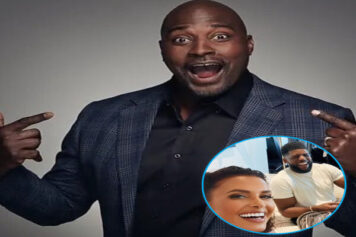The stats say college baseball coaches don’t recruit Black players, but Michigan and Vanderbilt are changing the game.
Michigan baseball coach Erik Bakich and Vanderbilt’s skipper Tim Corbin get it when it comes to diversity in baseball. They understand the massive socio-economic setbacks to blacks choosing baseball as a sports path and valuing the diversity that has helped turn the game into a billion-dollar industry.
These coaches understand that economics and limited opportunity remain the greatest obstacles for baseball players of color — not disinterest.
Bakich admits that he purposely recruits inner-city talent, those lost jewels that don’t have the financial resources to keep up with the thousands of dollars it costs to play travel baseball and participate in showcases.
“We want to provide as many opportunities for kids across America as we can.”
Michigan baseball coach Erik Bakich looks to assemble a diverse roster when recruiting and awarding scholarships.#CWS | @umichbaseball pic.twitter.com/QiZIl1DsNU
— NCAA Baseball (@NCAABaseball) June 18, 2019
Every African-American baseball player in the country with diamond dreams, no matter the age or skill level, should be watching when these two rising programs faceoff in the best-of-three-games College World Series finals starting Monday.
They represent America at its best.
“It’s a lot of digging,” Bakich told the Washington Post in a phone interview.“It’s a lot of travel. It’s a lot of time invested by our staff to find these types of players.”
“We don’t limit ourselves to the mainstream tournaments and (recruiting) showcases that everybody seems to go to. We try to be as exhaustive in our search as possibly we can.”
You should know this by now:
You'll never get hot
If you don't know the cold. #GoBlue | #RoadToOmaha https://t.co/qfL8ItCZ7Y— Michigan Baseball (@umichbaseball) June 7, 2019
White College Baseball Coaches Don’t Recruit Black Players
According to the NCAA Demographics Database, in 2018, nearly 80 percent of Division I players were white; just 6 percent of the 10, 565 players in D-1 college baseball was black.
Lazy, uncreative and culturally-jaded strategies by D-1 coaches who were 90 percent white in 2018, has compounded the effects of the exorbitant costs associated with the baseball come up for black, inner-city athletes.
“That’s a problem,” said Eastern Kentucky University head coach Edwin Thompson, who became the ACC’s first black baseball recruiting coordinator at Duke in 2010. According to the Washington Post, Thompson coaches one of college baseball’s rare minority-majority clubs and has three black assistants.
“If coaches don’t come from diverse backgrounds, they’re going to recruit the players they’re familiar with, “ he said.
True story.
ln fact, it’s gotten so bad, that many of the HBCU programs are also led by white men who are failing to recruit black players. Programs are disbanding and many of the existing programs are comprised of more white and Hispanic players than African-Americans.
Michigan starts four African-American players and has seven on the roster. Vanderbilt also has seven. With two rosters that contradict the “blacks don’t play baseball” narrative that has become increasingly popular, you could say that these guys are ushering in a new philosophy for success in baseball considering the fact that they are the last two squads standing.
They represent thriving Power 5 squads with an abundance of black talent representing baseball as it should be.
A few 📸 from today's @NCAACWS activities! #GoBlue pic.twitter.com/BFNCuFmR1Y
— Michigan Baseball (@umichbaseball) June 23, 2019
There’s a reason why baseball elevated to the status of “America’s favorite pastime” after Jackie Robinson broke the color barrier in 1947 with the Brooklyn Dodgers. His presence ushered in a new racially-inclusive era in baseball, which also helped catapult the civil rights movement in our country. Baseball became a symbol of Black hope and a weapon used to obliterate segregation and discrimination in the workplace. The game became a reflection of the incomparable diversity that this country was built upon.
Bakich and Corbin get this.
Changing The Culture: Similar Minds Shine At College World Series
The 57-year-old Corbin and 41-year-old Bakich developed a strong friendship over the years. Their wives and families are also very close.
According to freep.com:
“When Bakich joined Clemson as a volunteer assistant in 2002, he immediately connected with Corbin, a veteran assistant who was a year away from a promotion to a head coaching position.
‘I kind of latched onto Tim, not knowing the kind of hours he put in,’ Bakich said. ‘My first experience in coaching was this guy that was working literally around the clock, from 6 a.m. to 9 p.m.’
They spent many days together and even more nights, with Bakich playing the role of the Corbins’ unofficially adopted adult child, and when Corbin left to take the helm at Vanderbilt in 2003, it was a no-brainer.”
“I felt like he was just sort of a miniature Tim Corbin,” Corbin’s wife Maggie told the Free Press. “I just remember how passionate about the game of baseball and coaching he was — just all-in — and he had endless energy, endless passion. He was great, very detailed-oriented and he was very much like Tim, only a younger version.”
When Tim got the nod to take over the Vandy program, he brought an inexperienced, but undeniably passionate Bakich with him as his assistant/understudy/project.
The younger coach learned the ins and outs of the craft and absorbed everything Corbin had to offer. At the same time, he brought a progressive influence to the culture. Together they developed their own winning philosophy and approach to how an American university baseball team should be represented.
Eventually, Corbin recommended Bakich for the Michigan job when it opened and the rest is history. Michigan is in the College World Series finals for the first time since 1962 and Vandy is also on the cusp of something historic for their school.
Working With MLB To Identify Diamonds In The Rough
The programs are evidence of the effectiveness of MLB’s diversity initiatives designed to create college and pro opportunities for elite minority high school – age players.
60 alumni of baseball’s various diversity-initiative showcases, camps, and instructional programs have produced 60 MLB Draft selections in 2018 and 2019 draft. Those specific programs are perfect recruiting havens for coaches committed to recruiting outside of the current culturally-restrictive guidelines.
Ako Thomas is grateful for all of the support heading into the College World Series Finals.#CWS | @umichbaseball pic.twitter.com/cQlkUus2lX
— NCAA Baseball (@NCAABaseball) June 24, 2019
It’s also further proof that a pipeline of Black talent in baseball is being reinvigorated. All it takes is some coaches who want to go the extra mile to bridge cultures, build baseball communities, face real issues, truly find the best players and ensure that it’s a game that is accessible and beneficial to everyone who wants to play it.



